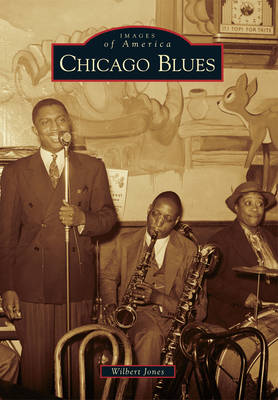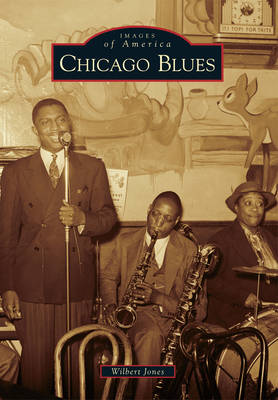
- Afhalen na 1 uur in een winkel met voorraad
- Gratis thuislevering in België vanaf € 30
- Ruim aanbod met 7 miljoen producten
- Afhalen na 1 uur in een winkel met voorraad
- Gratis thuislevering in België vanaf € 30
- Ruim aanbod met 7 miljoen producten
Zoeken
Omschrijving
Blues was once described as the devil's music. It eventually became some of the most beloved American music that was embraced by a global audience. Originating in African American communities in the South in the late 1800s, it was inspired by gospel and spiritual music sung by field hands and sharecroppers who worked on plantations. During the Great Migration from the early 1900s to the mid-1970s, many African Americans moved north for a better quality of life. Chicago was one of America's leading industrialized cites, and manufacturing jobs were plentiful and provided better wages than sharecropping. Many blues musicians who worked as field hands and sharecroppers moved to Chicago not only for those jobs, but also to pursue their love of music. Greats such as Big Bill Broonzy, Tampa Red, Muddy Waters, Jimmy and Estelle Yancey, Robert Nighthawk, Elmore James, Willie Dixon, Earl Hooker, Koko Taylor, Sly Johnson, Buddy Guy, Howlin' Wolf, Eddie Burns, Zora Young, Junior Wells, and a host of others came with their own styles and gave birth to Chicago blues.
Specificaties
Betrokkenen
- Auteur(s):
- Uitgeverij:
Inhoud
- Aantal bladzijden:
- 128
- Taal:
- Engels
- Reeks:
Eigenschappen
- Productcode (EAN):
- 9781467112208
- Verschijningsdatum:
- 27/10/2014
- Uitvoering:
- Paperback
- Formaat:
- Trade paperback (VS)
- Afmetingen:
- 165 mm x 231 mm
- Gewicht:
- 317 g

Alleen bij Standaard Boekhandel
+ 69 punten op je klantenkaart van Standaard Boekhandel
Beoordelingen
We publiceren alleen reviews die voldoen aan de voorwaarden voor reviews. Bekijk onze voorwaarden voor reviews.







